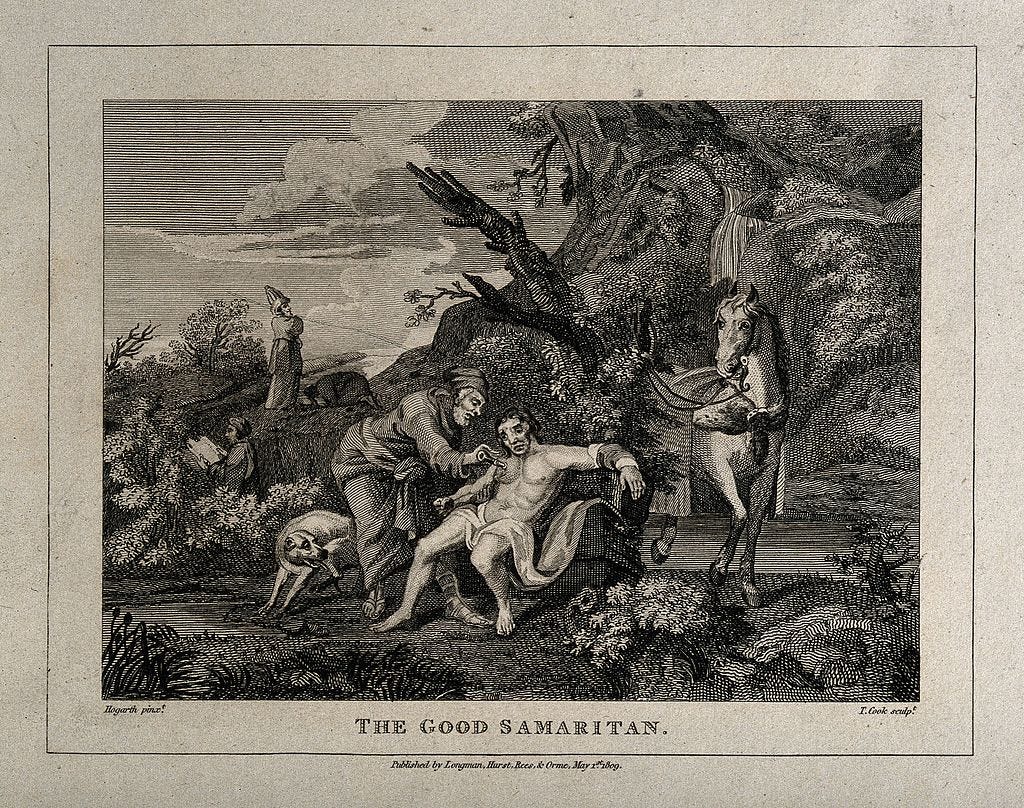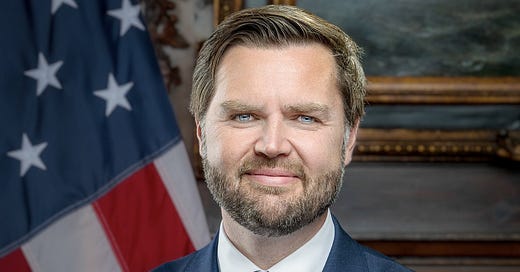“I will say a prayer for victory,” said Vice President JD Vance during the extraordinary US security lapse when journalist Jeffrey Goldberg of The Atlantic was inadvertently included in a Signal group discussing imminent military strikes in Yemen.
A Familiar Phrase, Heard Afresh
To cradle Catholics, the phrase “I will say a prayer” is second nature. It’s part of the rhythm of growing up Catholic—uttered during hard times, moments of reflection, and often as a gesture of goodwill.
But hearing the Vice President of the United States say it—especially in the context of military action—rings an emergency alarm bell.
God Delusions in the Situation Room

Having long since outgrown the God delusion, I find it disorienting—discombobulating, even—that the Vice President genuinely seems to believe his personal prayer to an imaginary friend could influence human history.
There’s also something quietly egotistical in the phrasing: “I will.” As if his individual, direct line to the Almighty could alter divine will. As if his whispered invocations might redirect the machinery of geopolitics.
It does little to inspire confidence that this is the calibre of spiritual reasoning informing the White House’s war-time decision-making.
The Gospel According to Luke
There are moral riches to be found in sacred texts. One of the most enduring within Christianity comes from Jesus’s answer to a simple, profound question: Who is my neighbour?
The Good Samaritan: A Radical Reminder

In Luke’s Gospel, Jesus responds with a parable: A man is robbed, beaten, and left for dead. A priest spots him, crosses to the other side. A Levite—in attire deemed respectful in the White House, no doubt—does the same.
Then a Samaritan arrives. He stops. He feels compassion. He bandages the man’s wounds, brings him to an inn, pays for his care, and promises to settle any further costs on his return.
Jesus asks: Who acted like a neighbour?
The answer: The Samaritan.
Jesus responds: “Go and do likewise.” (Luke 10:30–37)
The Gospel According to JD Vance

Contrast that with JD Vance’s take on Fox News:
“You love your family. Then you love your neighbour. And then you love your community. And then you love your fellow citizens in your own country. And then, after that, you can focus and prioritize the rest of the world. A lot of the Far Left has completely inverted that…”
This tidy little hierarchy of love would certainly offer a warm, self-justifying hug to the priest and Levite who left the wounded man behind. Prioritize your circle. Love selectively. Outsiders come last.
It’s a complete inversion of the parable Jesus offered. It’s the exact opposite of it.
Selective Compassion Isn’t Compassion
The Evangelist Vance might also want to spend a moment with Luke 6:32:
“If you love those who love you, what credit is that to you?”

Selective compassion isn’t compassion. It’s convenience dressed up as virtue.
Between the Lines of Scripture and Spin
In short, this human being finds the Gospel According to Vance lacking in spiritual depth and moral imagination. It doesn’t stand up to the wisdom of the parable of the Good Samaritan in the canonical Gospel. In fact, it’s the antithesis of it.
Happy Easter,
Joe
Joe’s acclaimed first memoir In My Gut, I Don’t Believe is available on Amazon in Kindle, Paperback, Hardback and Audible editions. His second memoir Saved by a Woman is available on Amazon in Kindle, Paperback, and Hardback editions.






Well, only certain things uttered by a Pope are deemed infallible in Catholic teaching. Nevertheless, I agree with you the current US administration seems to be motivated by myopic selfishness with catastrophic consequences for so many.
Catholics consider the Popes words inspired by god and infallible. Trumps words and directions are inspired by greed and from a pathological liar. Who’s words you value reflect your character.